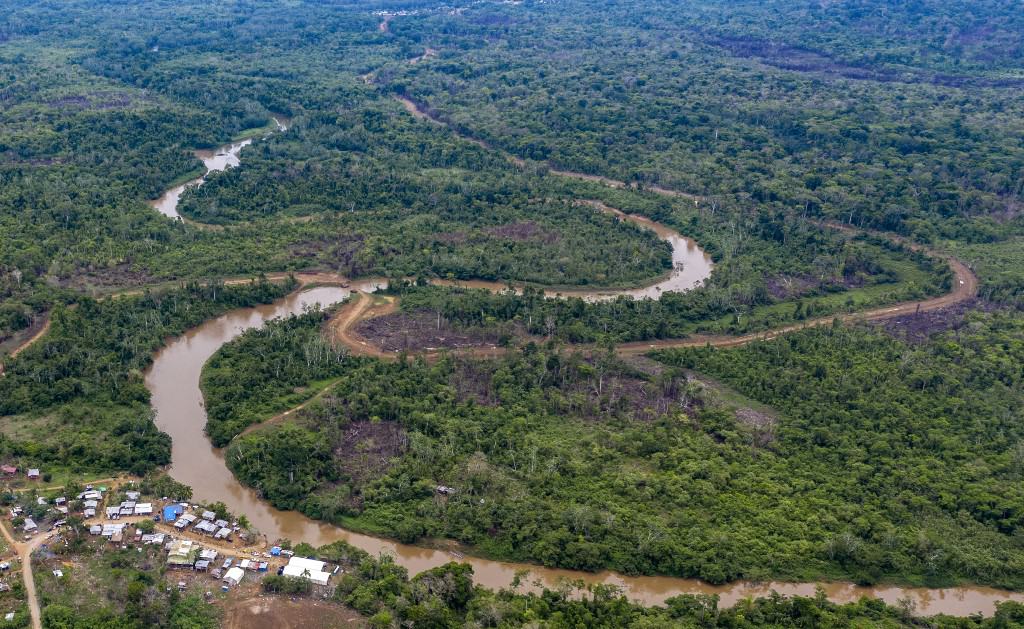“We are migrants, not slaves,” says Renick Miseney.
Miseney, 37, is one of hundreds of Haitians who — unable to continue the journey north due to the coronavirus pandemic — is stuck in a Panamanian migrant shelter, where violence has erupted in recent days.
Miseney told AFP by phone that he has been stranded in Panama since the end of February, when he sold his small restaurant in Chile after social unrest erupted in the South American country.
After crossing the border from Colombia through the dangerous Darien jungle, some 2,000 migrants from Cuba, Haiti, Bangladesh, Nepal, Congo, Cameroon and India, remain stuck in camps in that region of Panama, unable to follow their planned route to the United States, Canada or Mexico.
Before the pandemic, 100 of them were sent every day — with the permission of San José — to the border with Costa Rica to continue their journey. But due to the health crisis, the borders are now closed.
The situation has caused an increase in tension in the camps, where migrants ask for better accommodations and to be allowed to continue their journey.
Authorities accuse them of having set fire to several medical tents last weekend in La Peñita, a migrant camp located in an indigenous community in Darien. Migrants also allegedly damaged vehicles, although the group denies those claims.
“We are going to proceed with the deportation of this group of people who have done this type of property damage,” Samira Gozaine, director of the National Immigration Service, told AFP.
The mayor of La Peñita, Nadine González, said residents “have months of being worried and scared.”
Some neighbors have accused the migrants of robberies and threats. Residents talk about taking justice into their own hands, in a town designed to serve 200 outsiders and not the current 1,500.
A stagnant situation
Miseney was trying to reach Mexico, where he hopes to to try his luck in another business with his wife and 15-month-old son.
But the pandemic surprised him in Panama, and now he remains in the Lajas Blancas migration station, in the jungle province of Darien, which borders Colombia.
“We are many immigrants who have been here in Panama for six months. We are sleeping and living poorly. We don’t know when we’re going to leave,” Miseney said.
“We are on a farm where there are horses, cows, donkeys, goats, chickens. We are migrants, not slaves.”
In a video sent to AFP, another Haitian, identified as Marco, denounces that in La Peñita, migrants are treated as “animals, as if we were dogs.”
“There is no reasonable life here,” Marco says in a video where tents, rudimentary bunk beds, scattered clothes and young children are visible.
Some 24,000 people crossed the Darien Gap in 2019. This year, at least 4,000 have made the same journey despite the danger, according to official figures.
Pressure cooker
Gozaine warned that 250 to 300 migrants would be deported due to the violent incidents.
“They are threatening us that if we don’t allow them to continue, they will continue (protests) until they are dead,” Gozaine said.
The Inter-American Court of Human Rights recently asked for international support and demanded that Panama take measures to guarantee the human rights of migrants.
The Panamanian government is advancing authorization for a new immigration station with 48 modular houses in order to improve care.
“We know that they are in uncertainty. We have treated them as human beings and we have improved the conditions in which they find themselves,” said Panamanian Security Minister Juan Pino, adding that migrants were offered the possibility of returning to their countries on humanitarian flights.
“This is like a pressure cooker,” Walter Cotte, regional director of the Federation of the Red Cross and Red Crescent for the Americas and the Caribbean, told AFP.
The difficulty of the situation requires doing “everything possible to generate agreements” that protect migrants, Cotte added.
“We are not criminals,” Miseney emphasized.






